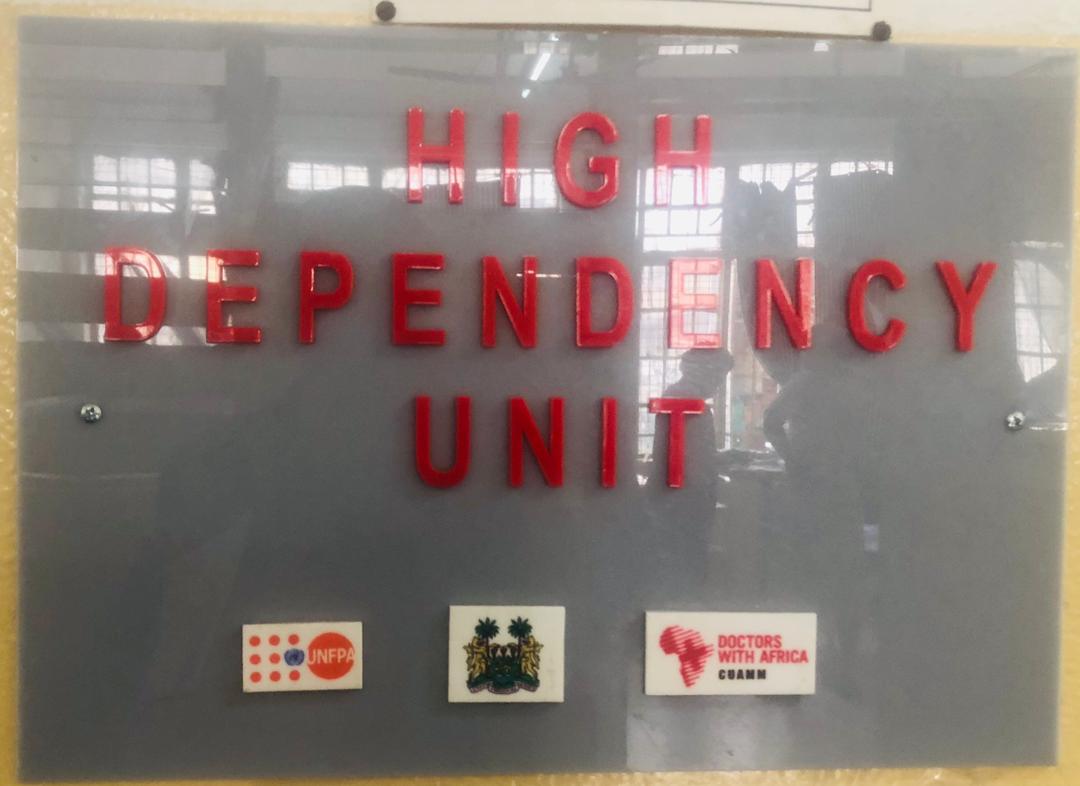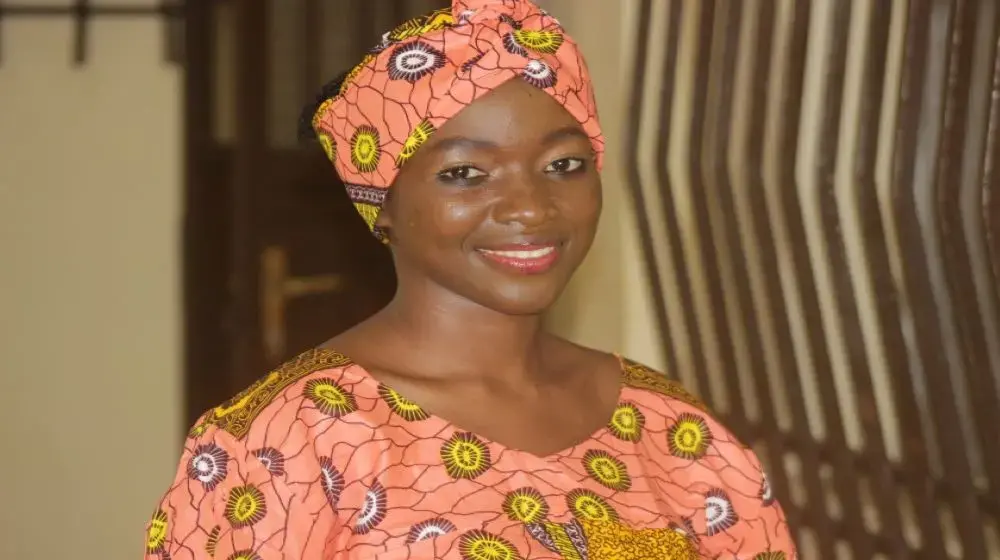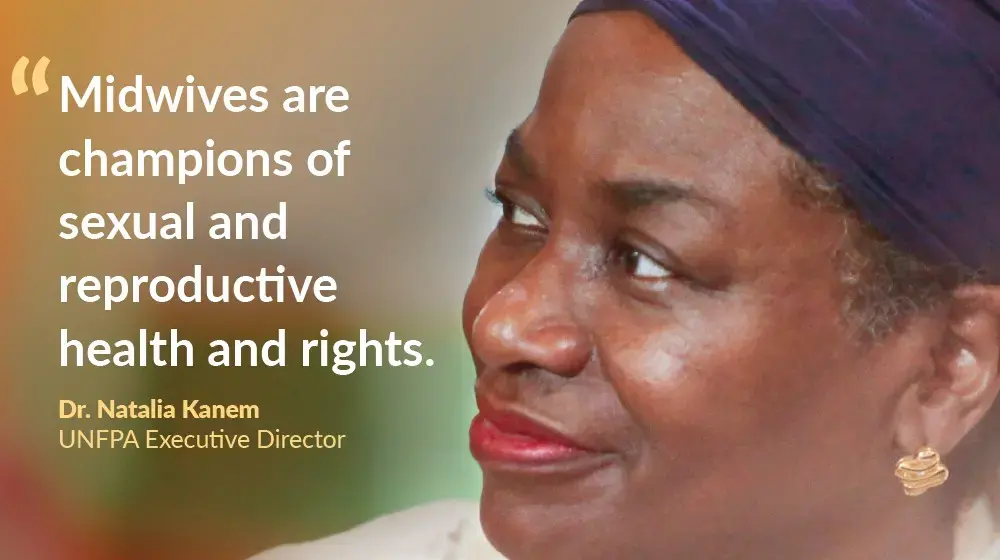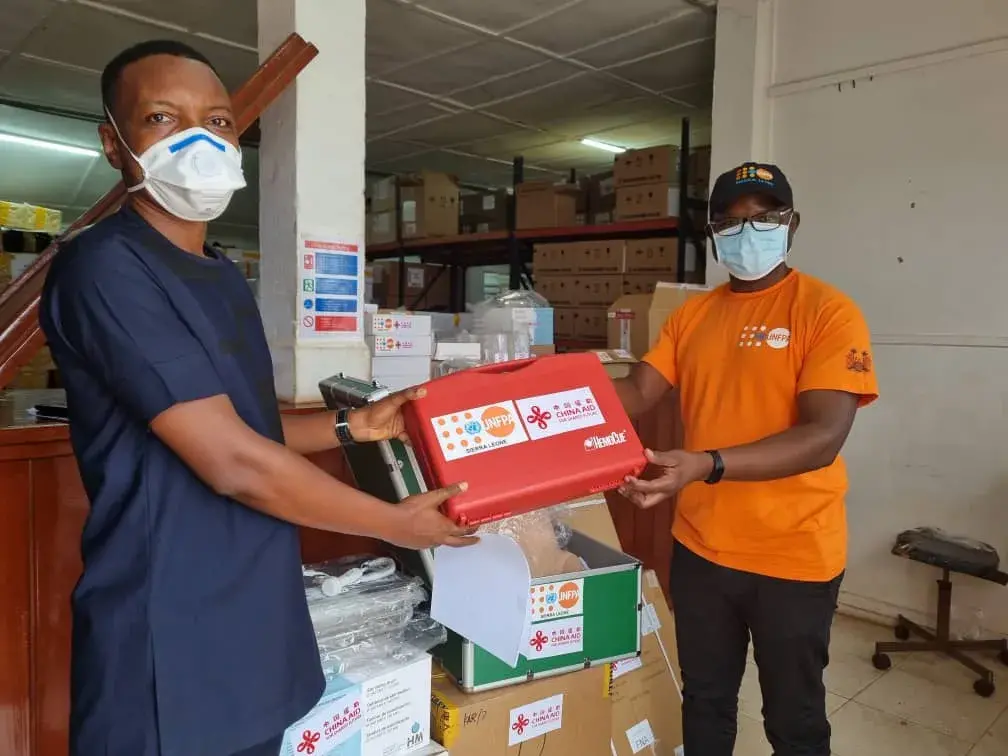FREETOWN, Sierra Leone, 1 September 2020 - Memunatu Jalloh is a 26-year-old housewife who sells soft drinks and bottled cold water from home to raise some money to help take care of their two children.
When she was pregnant with her third child, she regularly visited her Community Health Center (CHC) for antenatal care as scheduled. This became routine for her until she was eight months pregnant. “I was doing well until one day when I had abdominal pain that started suddenly and was treated but there was no improvement. The pain was so excruciating it prompted me to visit my local community health centre the following day on 29 July” explained Memunatu.
Her nearest CHC in Wellington in the capital city, Freetown, lacks the needed equipment, skilled and qualified health personnel to treat complicated maternal health conditions.
On the same day 29 July, Memunatu was referred to the Princess Christian Maternity Hospital (PCMH), the closest referral hospital to her home, which is about 40 minutes-drive away. On arrival, she was taken to the theatre for an emergency operation.
To help save her life “the hospital secured blood for her and ensured an emergency blood transfusion” explained Sajoh Mansaray, the nurse in-charge of the High Dependency Unit at PCMH.
Nurse Mansaray, further, explained that Memunatu’s condition was critical and they realised that she had life threatening internal bleeding, a condition referred to as abruptio placentae, one of the causes of bleeding during pregnancy referred to as antepartum haemorrhage.
Bleeding in pregnancy (Obstetric haemorrhage) accounts for about 40% of maternal deaths in Sierra Leone, a country with one of the worst maternal mortality ratio in the world with 1,360 deaths per 100,000 live births according to 2015 UN estimates.
The 2015 Sierra Leone DHS indicates that maternal deaths account for 36 per cent of all deaths of women aged 15-49 years. Memunatu’s condition was critical and without timely and appropriate intervention by qualified health workers, she could have died.
As part of the UK aid funded Saving Lives in Sierra Leone programme, the United Nations Population Fund (UNFPA) through Doctors for Africa -CUAAM, is supporting the Ministry of Health and Sanitation to improve quality services for pregnancy women and postnatal women to prevent maternal deaths. This support targets three major hospitals in the country- the Princess Christian Maternity hospital (PCMH) in Freetown and the government hospitals in Bo and Makeni - which are the main referral centres for other hospitals and community health centres
The support to these hospitals included establishment of High Dependency Units (HDUs), a specialised section of the maternity wing, used to care for pregnant and postnatal women with life threatening complications related to the pregnancy or child birth.
At the PCMH, Memunatu Jalloh was admitted at the High Dependency Units (HDU). “She was unconscious and could not talk and was severely anaemic” said nurse Sajoh Mansaray.
Memunatu survived, thanks to the work of the health workers, but sadly, she had a still birth which is often the case with patients who have abruption placenta. “I never saw my child,” she said in a sombre tone, whilst responding to treatment in the recovery room of the HDU.
She remained grateful to the health professionals working in the HDU. “I owe them a lot because they helped save my life. They provided a great service,” she added. “I thank God, given my current condition. I am happy that I can now walk on my own, eat food and can see people unlike before.”
Considering her personal experience, Memunatu believes it is in the best interest of all pregnant women to always go to their local CHC or government hospital to access services during pregnancy and childbirth. “I advise pregnant women to visit their health centres as soon as they become pregnant as this can help save their life and that of their baby,” implored Memunatu.

About the United Nations Population Fund
UNFPA is the United Nations sexual and reproductive health agency. Our mission is to deliver a world where every pregnancy is wanted, every childbirth is safe and every young person's potential is fulfilled.
For more information, please contact:
Angelique Reid, UNFPA Sierra Leone, Communication Specialist
Email: areid@unfpa.org
John Baimba Sesay, UNFPA Sierra Leone, Web and Media Analyst
Email: jsesay@unfpa.org Tel: +232 30953193/ +23279369395





